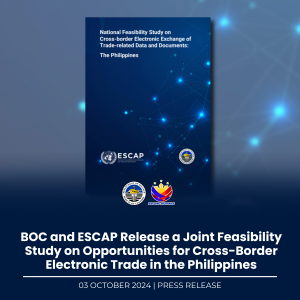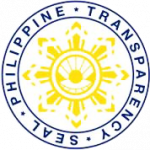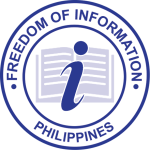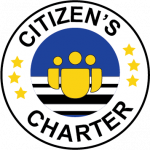- GOVPH
- About BOC
- Issuances
- Aduana Library
- Memoranda
- Memoranda for Reference Values
- Customs Administrative Order (CAO)
- Customs Administrative Order (CAO) 2025
- CUSTOMS ADMINISTRATIVE ORDER (CAO) 2024
- Customs Administrative Order (CAO) 2023
- Customs Administrative Order (CAO) 2022
- Customs Administrative Order (CAO) 2021
- Customs Administrative Order (CAO) 2020
- Customs Administrative Order (CAO) 2019
- Customs Administrative Order (CAO) 2018 and Older
- Customs Memorandum Order (CMO)
- Customs Memorandum Circular (CMC)
- Customs Memorandum Circular (CMC) 2025
- Customs Memorandum Circular (CMC) 2024
- Customs Memorandum Circular (CMC) 2023
- Customs Memorandum Circular (CMC) 2022
- Customs Memorandum Circular (CMC) 2021
- Customs Memorandum Circular (CMC) 2020
- Customs Memorandum Circular (CMC) 2019
- Customs Memorandum Circular (CMC) 2018 and Older
- Customs Special Order (CSO)
- Custom Training Circular (CTC)
- Joint Memorandum Orders (JMO)
- Trade
- News Room
- Port Updates
- HR Corner
- Quicklinks
- Infographics
- Bureau of Customs Webinar
- Auction and Sales
- Bid Opportunities
- Invitation to Bid / Request for Quotation / Invitation for Negotiated Procurement / Notice to Conduct Direct Contracting – 2023
- Invitation to Bid / Request for Quotation / Invitation for Negotiated Procurement / Notice to Conduct Direct Contracting – 2022
- Invitation to Bid / Request for Quotation / Invitation for Negotiated Procurement / Notice to Conduct Direct Contracting – 2021
- Invitation to Bid / Request for Quotation / Invitation for Negotiated Procurement / Notice to Conduct Direct Contracting – 2020
- Invitation to Bid / Request for Quotation / Invitation for Negotiated Procurement / Notice to Conduct Direct Contracting – 2019
- Invitation to Bid / Request for Quotation / Invitation for Negotiated Procurement / Notice to Conduct Direct Contracting
- Bid Documents
- Bid Supplement
- Summary of Awarded Contracts
- Summary of Contracts Awarded 2023
- Summary of Contracts Awarded 2022
- Summary of Contracts Awarded 2021
- Summary of Contracts Awarded 2020
- Summary of Contracts Awarded 2019
- Summary of Contracts Awarded 2018
- Summary of Contracts Awarded 2017
- Summary of Contracts Awarded 2016
- Summary of Contracts Awarded 2015
- Summary of Contracts Awarded 2014
- Summary of Contracts Awarded 2013
- Annual Procurement Plan
- Customs Knowledge Resources
- References
- Gender Equality and Diversity
- Philippine National Trade Repository
- Philippine Tariff Finder
- Authorized Economic Operator
BOC and ESCAP Release a Joint Feasibility Study on Opportunities for Cross-Border Electronic Trade in the Philippines
The Bureau of Customs (BOC) and the United Nations (UN) ESCAP recently published a study entitled: “National Feasibility Study on Cross-border Electronic Exchange of Trade-related Data and Documents: The Philippines,” which assesses the readiness of the Philippines in implementing electronic trade data exchange with potential partners in the Asia-Pacific region.
The study is accessible in the ESCAP website at https://tinyurl.com/PH-Feasibility-Study.
Conducted in close collaboration with the Bureau of Customs (BOC), the National Single Window–Technical Working Group (NSW-TWG), and the Philippine Trade Facilitation Committee (PTFC), this study offers a detailed evaluation on the need for enhanced interoperability and integration among the systems of the BOC and its Trade Regulatory Government Agencies (TRGAs).
When it comes to adoption of electronic exchange of data and documents, the joint feasibility study identified China, Japan, South Korea, Hong Kong and the US as key potential trading partners. It highlights the top three documents for prioritization in cross-border electronic exchange: the Certificate of Origin, Export Declaration, and Phytosanitary Certificate.
The report also provided the current landscape of trade facilitation in the Philippines, with a particular focus on the impact of paperless trade on Small and Medium-Sized Enterprises (SMEs) who stand to benefit most from streamlined, digital trade processes. Key findings of the study reveal significant progress in the Philippines’ digital trade infrastructure, with many Customs operations already digitalized. However, challenges including manual processes in permit and license applications and a lack of standardized data formats across government agencies still remain. These issues particularly affect SMEs, which account for 99.5% of firms and 63.2 % of employment in the country.
The study advocates for policy development in areas such as capacity-building, standardized digital data governance, and the use of emerging technologies.
ABOUT GOVPH
All content is in the public domain unless otherwise stated.







